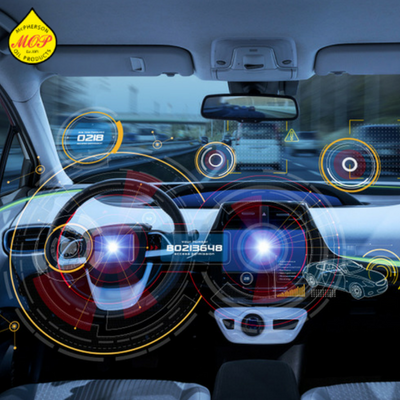What You Need to Know about Connected Cars
15 Aug 2018, Posted by in Industry InformationConnected cars, put simply, are cars which are connected to the internet. This internet access allows the car to remotely share important information, all of which could come in handy down the road. For example, your car’s data will keep track of your fuel levels, brakes, and tire pressures, while also tracking your geolocation if you should have your car stolen or lose it in a large parking lot.
Although connected vehicles haven’t yet affected commercial fuel services too much, it won’t be long before they will. Fleets are already closely monitored via systems such as GPS and telematics. It’s only a natural progression that commercial vehicles are going to be fitted with internet connections to provide fleet managers with real-time information.
Connected Cars Are Now Affecting the Insurance Industry
It’s no secret that auto insurance can be incredibly expensive, never mind the insurance for an entire fleet of trucks! If there’s one thing insurers love, however, it’s data. The additional informational that connected cars could provide to underwriters will allow them to make better-informed decisions and risk calculations for drivers. This level of insight allows them to offer more accurate insurance policies and properly-priced premiums.
This could be great news for good drivers and bad news for poor drivers. However, being constantly connected may feel a little Orwellian to you whatever your driving is like. For your fleets, be sure to keep an eye on your drivers’ behavior if they’re in a connected car – they could cost the business a fortune if they’re not careful.
Vehicles Will Become More Liable Than Drivers
As connected cars and self-driving cars slowly creep onto the road, questions then have to be asked about liability after an accident. Whose fault is it if something goes wrong? The driver/occupant or the manufacturers of the vehicle?
A recent investigation found a software fault consisting of 14 errors in a BMW car’s onboard connected computer, causing many to question how accountable drivers should be if their vehicles go awry. After all, they did not create the computer that is acting upon faulty data.
Self-driving car crashes complicate matters even more, causing much public debate. Despite a couple of well-publicized crashes, Teslas and other self-driving vehicles have been found to be far safer than human drivers on average, even if they do still crash occasionally. If a self-driving connected car gets into a crash, it’s very possible in the future that the car will automatically notify the insurance company about the crash and the extent of the damage, streamlining the process for self-driving car owners.
One of the biggest questions fleet managers want to know is how or if autonomous cars will save them money. One of the best ways to save money is by using one fueling company for total petroleum management. Contact McPherson Oil today to learn more about how we can save your bottom line!

About: McPherson Oil is proud to distribute ExxonMobil products in the southeast including Alabama, Arkansas, Florida Panhandle, Georgia, Louisiana, Mississippi and Tennessee.
